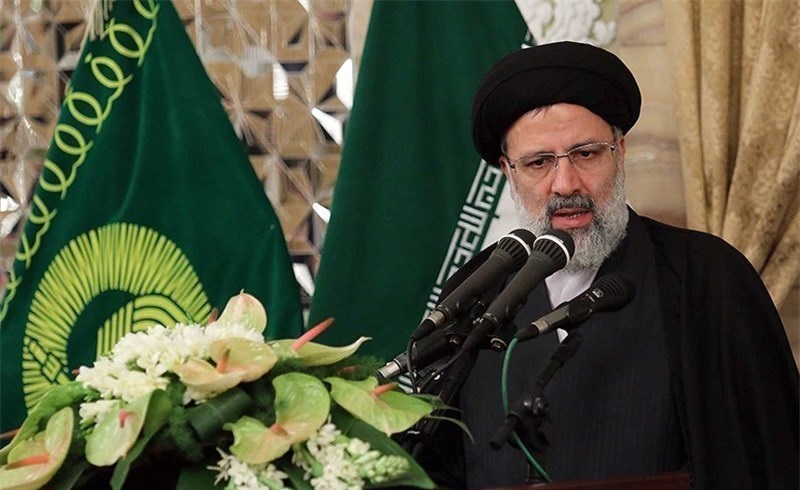FRESH AIR
Brutal new Iranian President raises major policy questions
July 6, 2021 | Oved Lobel

A version of this article was published in The West Australian – 5 July 2021
Ebrahim Raisi’s effective appointment to the presidency of Iran has many implications, none of them positive for either ordinary Iranians or the Biden Administration’s attempt to re-enter the 2015 Joint Comprehensive Plan of Action (JCPOA) nuclear deal.
Raisi cut his teeth during the 1980s as a brutal enforcer of Ayatollah Khomeini’s system of clerical rule. He is most notorious for being one of the four Death Commissioners who oversaw the mass summary execution of thousands of political prisoners over several months in 1988, something of which he remains proud and for which he has been sanctioned by the US.
Since then, Raisi has gone from strength to strength as a torturer and butcher, crushing all opposition and protests in his various judicial capacities, including the 2009 Green Movement. Since 2016, Raisi has been groomed by Supreme Leader Ali Khamenei as a potential successor.
Whereas, since 1993, Iran has had the trappings of competitive elections – though strictly within the confines dictated by the regime, where all competitors were handpicked by the clerics and presidents had very little real power – this time around, Khamenei decided to dispense even with this façade. He effectively appointed Raisi directly by arranging for all viable competitors to be barred from even running. Getting on in years, the Supreme Leader wants a brutal revolutionary from the 1980s in his own mould to keep Khomeini’s system intact.
Of course, internally, Iranians may not notice much difference at first. Even under the so-called moderate President Hassan Rouhani, as many as 1,500 people were gunned down during mass protests, prisons continue to be filled to the brim with political prisoners and executions continue at a rapid pace. These are features of the Islamic Republic independent of who is president.
However, by ripping off even the mask of moderation, Khamenei’s appointment of Raisi does pose major issues for the international community’s engagement with Iran, particularly for the Biden Administration. Biden’s Secretary of State Antony Blinken released a statement in February entitled “Putting Human Rights at the Center of US Foreign Policy,” reflecting the ostensible approach of the administration to foreign affairs. Will the new administration be happy to directly engage with Raisi, a mass murderer accused of crimes against humanity, especially given its own sanctions against him?
Rafael Grossi, the Director-General of the International Atomic Energy Agency (IAEA), has been increasingly sounding the alarm about Iran’s nuclear conduct, saying that constant Iranian obstruction of inspectors “seriously affects the ability of the Agency to provide assurance of the peaceful nature of Iran’s nuclear programme.” Separately, Grossi stated that, “A country enriching at 60 per cent [which Iran currently is] is a very serious thing — only countries making bombs are reaching this level.”
But the truth is the IAEA has never been able to do the job the international community gave it with respect to Iran. Iran’s Perilous Pursuit of Nuclear Weapons, a new publication by David Albright – an expert on nuclear proliferation who worked with the IAEA’s Action Team in Iraq in the 1990s – and some colleagues at the Institute for Science and International Security makes this very clear.
Based on unprecedented access to “nuclear archive” documents appropriated from Tehran by Israel’s Mossad in 2018, the book establishes that, rather than stopping its overt nuclear weapons program after 2003, Iran merely continued it under clandestine civilian guise and has been hedging towards an “on-demand” nuclear weapons capability ever since. The documents also show Iran never cooperated with the IAEA on the “Possible Military Dimensions” of its program, and any knowledge the IAEA now has of it comes from the archive the Mossad seized.
Iran has thus far refused to allow the US to re-enter the JCPOA, utilising the Biden Administration’s desperation for Iran to come back into compliance to string out the talks with maximalist demands as it advances its enrichment capabilities and development of delivery systems.
Follow-on negotiations the administration says it wants on Iran’s missiles, terrorism and human rights abuses have already been ruled out by Raisi, as they were by his predecessor.
Grossi himself has asserted that a straight return to the JCPOA is impossible, saying the US “cannot put the genie back into the bottle,” and “the linear return to 2015 is no longer possible.” This calls into question the entire approach of the Biden Administration.
If the administration caves and unilaterally lifts all sanctions on Iran, the net effect will be pumping funds into a regime now run by two mass murderers. This would be a senseless bribe that would only empower internal repression and supercharge the regime’s regional imperialism.
In 2009, the Obama Administration kept silent as the regime ruthlessly put down protests against the blatant rigging of an election. After the JCPOA was signed, the administration insisted it was necessary to avoid condemnations or pressure on the regime for fear of empowering hardliners in Iran against the “moderates”.
Given the blatant fixing of this election, dissent and its violent repression under notorious killer Raisi is likely to increase even more.
Will the administration empower that regime to better repress its own people – and indulge in even more regional destabilisation and support for terrorism – by lifting sanctions and giving it a massive influx of resources?
Oved Lobel is a policy analyst at the Australia/Israel & Jewish Affairs Council.
RELATED ARTICLES

‘Time’s up for talk’: Joel Burnie discusses Antisemitism Envoy’s report on Sky News

‘Optimism’ for Hamas to ‘exile’ their power and create a permanent ceasefire with Israel: Joel Burnie on Sky News

Australian government’s response to Iran-Israel conflict ‘disappointing’: Paul Rubenstein on Sky News




















